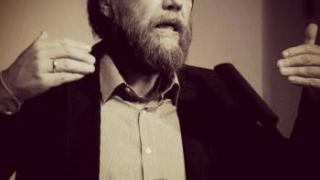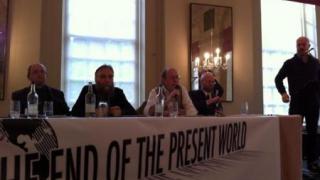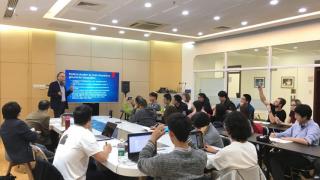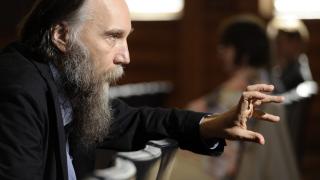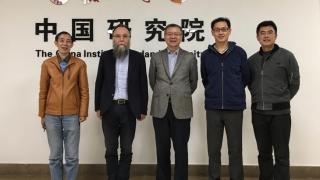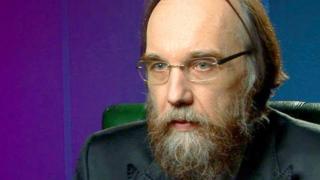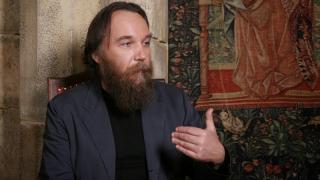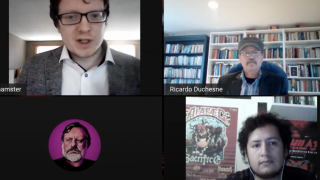Scientific-practical seminar on the topic: "Psychology of super-strong personality"
The general sense is as follows: the fact is that in the conditions of modern reality there are two fundamental practical problems that are faced people, especially young people. One practical problem is related to the fact that there is a complete erosion of the anthropological archetype.
Accordingly, the young man who enters into life and who is looking for some determinancy does not find it. As sample paradigm of life he is offered something so fuzzy, counter-intuitive, non-fixed, and doesn’t get any dimension to improve himself. Our society under threat in the near future of total pubertal schizophrenia.
The following happens: at the moment when a person moves from the child’s state to the adult’s state, there are two different worlds, completely finished and integral, with their own system of coordinates, with their own model. There is some breakpoint between these states, which was replenished in traditional societies with an act of initiation. Moving in the natural state, the child does not become an adult, by itself, without the intervention of special rituals and special operations. If a child does not receive a certain impulse in the age from 13 to 22 years old, if no event takes place with him, he does not become an adult. He continues to be an adult child. This condition is a dead end. Further, he accumulates a certain dissonance between his childish state of the child’s subconsciousness and the criteria of the social environment, which leads to neuroses, consists of a bunch of psychiatric diseases of people.
Everyone understands this perfectly in the world of tradition, and within the framework of psychological development there is an insurmountable gap between the state of the child and the state of the adult, i.e. pubertal initiation. In order to translate the state of the child into an adult state, it must be subjected to a certain stress. At this point, the child gets the image of the model to which he should strive. From a social point of view, a child is an object of society, but as an adult it must be a subject. The transition from the object to the subject does not occur itself. Otherwise, if the child does not undergo pubertal initiations, he remains an object for life, which is manipulated by external models. He does not acquire the status of a subject.
If there is a place for initiations, then objectivity is minimized or nullified, and subjectivity is affirmed. As a rule, in this state a person is given a name in society. As a rule, this is accompanied by trauma, for example, one’s tooth is knocked out, an incision is made, a tattoo, ears are pierced, sometimes very cruelly.
Practically all peoples had male puberal initiations, and many of them had also female ones, which were more archaic [ɑː'keɪɪk], since in patriarchal [peɪtrɪ'ɑːk(ə)l] cultures it was believed that a woman doesn’t have to be a full-fledged subject of society, she can remain an object. Historically, many societies had kept some rudiments of female initiations promoting the woman-child to the state of an adult woman. There are elements of this in different cultures, but the more archaic the society is, the stronger the tradition of puberal initiations remains. This is the general model, which is still actual.
In the state of initiation, a certain archetypical image is given to a person, that is, what he must be like as a subject. He says goodbye to the object state of a child and gets acquainted with the subject state of an adult. Here he is given the image of the archetype, that requires a change of name, a certain trauma, the rupture of navel cord that connects him to the Great Mother, with whom he breaks. At this moment, the child leaves the care of mütter Recht, the maternal right, and is put out to open sea. From now on he is alone. This, of course, is a complex multidimensional period. For example, during military service, hazing is one of the elements of this initiation, when a soldier is beaten. In the end, he is told: be patient, in a year you will become a normal person. He is given a positive image of the "grandfather", independent, having the powers of a sergeant. Even such simplified models contain these elements.
In traditional society, everything is crystal clear: there are states of objectness, of subjectness. What is interesting, anthropologist Margaret Mid says that children of primitive tribes do not know myths, they are full of bastards, they have no imagination, they have no fairy tales, their jokes are rude and their interests are deeply material, they are avid bastards, similar to adults in European society. And when they are initiated, they get acquainted with myths, heroes, other worlds, spirits that descend on them, various mysterious things, and since then children in traditional society become full-fledged dreamers, look at the stars and become romantics. They say goodbye to vulgarity and animal primitiveness that were peculiar to them and become Panarels, looking for invisible and subtle worlds.
This is very interesting, because our society has an absolutely opposite model. In the state of tradition everything was clear, and in this pubertal moment a person was assigned a caste and was given an image of what it should be, what qualities to possess, etc.
In the epoch ['iːpɔk] of modernity, initiation as a full-fledged reality was canceled, but its substitutes remained when the boss for example summoned a person and told it: this is Pavel Korchagin, the perfect archetype of a communist, you must be like him, there is also Joseph Stalin - the Higher-Self.
Or, for example, the image of a liberal capitalist businessman. When an American child in modernity was in puberty, his parents made him resettle. By the way, many initiatory rituals have been preserved in schools, right up to the youth Freemasonry ['meɪs(ə)nrɪ] in American schools, in particular, the “Skull and Bones” society, to which all modern US presidents belonged, and they became acquainted with children's puberal youth masonry in college.
Even an ordinary merchant in the epoch of modernity was given a certain ideal: now you have to trade well, be consistent, firm, so this is the image of man.
In Premodern there was a clear initiation, in the modern it was more simplified, and in post-modern world it completely disappears. In modernity there is no image of an “adult”, in other words, the image of the social subject is never given. Here arises the idea of “humanism”, the idea of ending unofficial relations in the army, the fashion for youthfulness, when European grandfathers try to resemble teenagers.
Now a young man has no image of an adult and there is not even a hint of the equivalent of initiation. This is a psychological problem that absolutely everyone faces, so today in our society there are more and more “eternal children”. In human society, nothing happens by itself, there is no such process of growing up as, for example, animals have. A small puppy becomes an adult dog in a natural way. But if you don’t initiate a small human cub into certain rituals, if you do not form a social image of an adult, it will never become an adult, because a human is not an animal, because man is a social being who lives in a social matrix and obeys social laws.
The absence of pubertal initiation, erasing its last signs in the postmodern paradigm disqualifies, does not allow the young man or girl to become adults. They remain children, doomed to be so in the age of 80, and 70, and 60 and never know what the subject archetype is.
This is a very concrete thing, and now the psychology of continual education is emerging. In traditional society, education was given once and forever: a person was taught, a tooth was knocked out - and he was ready for life. A more difficult situation was with education in modernity, but now it has become permanent, there is never a feeling of an end, that we know all, and we became adults, because there is no transition to adulthood.
- Excuse me, is it bad, because education gives rise to personal development?
- That’s right, to eternal development, but with continual education it is not the personality that develops, but a constant state of preparation for something that is to come is maintained. Continual education means that we are preparing for something that never comes. Then it turns out that education leads us only to one thing - to our own death, and to nothing else.
The most important thing is that in such a state, a person does not go beyond the edge of an object, he becomes an absolute object for manipulation, since the real objectiveness in the human state is given in childhood - the child can be easily tricked, you can spoon-feed him - it can be manipulated almost as property. It is no coincidence that in Roman law, women and children were regarded as private property of a man, and a man was distinguished in brightly patriarchal Roman society by the presence of initiation, which even the lowest castes had.
Now there is no such transition, and there is a child and a grown-up child, but an adult does not exist, we throw it away, hence our entertainment culture and many other elements.
Our most important task is to make the transition from child to adult, accordingly, our structure should be initiatory in psychological, cultural, organizational aspects, we should complement the absent element of taking responsibility that is transforming object in the subject. In fact, this is the main task of psychology.
Now notice that there are two trends in society: the non-maturing child and the child maturing through initiation process, a child who ceases to be a child. These two types diverge in different interesting trajectories: the first type also develops, it also has its own logic and it becomes the most frequent, and practically, dominant anthropological essence of the postmodern era, or the post-anthropological essence.
The second type, which follows the path of the restored initiatic break, differentiates itself from the main mass. And here it is necessary to pay attention to this very clearly. Here is the real moment of differentiation: what Julius Evola wrote about - homo differentiato.
The Eurasian Youth Union sets itself a very specific psychological and social task - to prepare the personalities that we take in the youth state, since it is difficult to work with “older” adolescents and to catch the energy of people who will become in 5-7 years irreversibly infantile adults if we do not attract them.
- Sorry, maybe it is a wrong question, but isn't this a kind of exploitation of youth energy?
- That's right, emancipatory exploitation. Youth energy is exploited here by the system. The system exploits through entertainment and manipulation of young people who do not go into an adult state, like plankton and object. The system exploits the absence of initiation so that the energy that was supposed to be concentrated on the transition from one phase state to another does not go anywhere and spreads. This is such an eternal inorganic “neither fish nor flesh”, however, the biological and social movement creates additional energies that “scatter like a fan” by going to concerts, entertainment, and participation in some activities organized by the system. But those who engage in this process don’t have even a remote chance to become a subject, i.e. be a full party in this system. Here there is a division into people-objects and people-subjects.
The theme of the pubertal initiation as a point of discontinuity is becoming non-mainstream and revolutionary. The most important thing is that now in the postmodern era, the Eurasian Youth Union has the task of becoming adults according to the classical fundamental models. You will not become them on your own. In our conditions, the mainstream of our culture, our being, our social system, our psychological preferences is aimed at ensuring that no one ever becomes an adult. These are the parameters of a particular game that we are in.
In the postmodern, there are no adults - there are young children, and there are old children. There are "children-retiree" and "children-children". There are no adults in this system. Anyone who, despite the prevailing tendency, becomes an adult, despite the fact that there is no initiation, falls into a completely new position in relation to this system. Here he acquires the status of a subject, and can say about himself “je suis”. This was the name of the newspaper published in Monaco by Guenon’s disciple de Sauvigny, who was engaged in the education of youth. (…)
It’s clear why we are talking about a super-strong personality. Because today only special people can even feel the lack of pubertal initiation, therefore these are the chosen ones, healthy masses, in the main volume there will be certain minority masses, masses of initiates. (...)
Of course, there are also intermediate things, because many people who are looking for initiation, moving away from the mainstream "childhood", don’t find it, and are moving towards different traps. For example, drugs, terrorist and extremist organizations, marginalism, pubertal madness, because when approaching the initiation of boys and girls, a person who is no longer a child and not yet an adult, faces a very interesting phenomenon. His consciousness, which has not yet been formed, is no longer an object, but not yet a subject, it is extremely extensible. Anything can fall into it, since the first stage of initiation is a descent into chaos.
The person is lost, it is no longer satisfied with objectiveness, but he begins to understand his childhood state, his inability to tear the navel cord linked with his object mother as unbearable suffering. He tears it without getting some kind of image, and sometimes he tears it simply, rushing anywhere, just to get rid of a certain demonic pursuer in the form of his own childhood. And, of course, a person can be carried away anywhere, therefore all that is called in the initiation “Eleusinian [ˌel(j)uː'sɪnɪən] marshes”, which are accompanying mental and social phenomena on this path, that are, by and large, subtle deep souls of people who, instinctively opposing this postmodern state, tried to get out, but went astray somewhere. In this “swamp”, as well, it is necessary to catch, save those people who were in it, because if a young man is experiencing a fundamental crisis, if he has signs of madness, radicalism, drug addiction, this is a plus, not a minus. This means that he is looking for certain initiations, he just hasn’t found them yet, or some “dark funnels” have sucked him on the way. In this respect, it is a very delicate and complex process. When a person says “no” to the inertial state — eternal, endless, blissful, idiotic childhood, he, in fact, already takes one step — he gets into work “in black”. But he still does not see the perspective image of the vertical, gold, which should restructure the chaos of his internal energy. This “gram of gold” is the party membership of the Eurasian Youth Union, if you take its metaphysical equivalent.
Why do we speak about super-strong personality? Because in the period when the general trend is aimed at removing this problem in general, i.e. a weak person is left without initiation, the strongest personalities are lost in drugs, perversions, surfing or any pubertal delusions. And only a super-strong personality, possessing a degree of flexibility, subtlety, understands the attractiveness of non-child metaphysical, but very dangerous perverse spheres associated with decomposition. Here a break of consciousness takes place. A drug addict is a strong personality, because he wants to search for a more saturated being than the one that the world around him gives him. He is looking for it, he finds it, he cannot cope with it. This is a strong personality that is lost on this path of power. (...)
The next stage after drug addict is the Eurasian Youth Union member, a person who feels the attraction of “insane abysses”, who hears the voice of the worlds behind the passive state of manipulated object, but, nevertheless, knows how to concentrate in order to become the object of new ecstatic states, and begin to master them. Such a person differentiates, separates himself from everybody - both from drug addicts and from non-drug addicts. He stands above everybody. And here it should be noted very precisely - those who are not ready to embark on the path of superpowers, who are not ready to oppose themselves to others, who are not ready to defy the environment, especially in postmodern conditions, say “you are like this I will not be like you, I will be different, I will be better than you, more full, and in general - I will be a subject”. This is the statement of the subject principle through initiation, with the fullness of initiation. (...)
It is very important that subjectivity is closely connected with power, with a sense of self-esteem and, if you like, of own superiority. It can be said that this is not at all Christian, but the superiority here is a fact, a result of the disassociation of oneself with the general trend of the masses. Yes, this is superiority, because it is the superiority of waking over the sleeping, healthy over sick, standing on the edge of a cliff and flying down the abyss. (...) This quality of superiority is neither pride nor vanity, it is just a clear fixation of one state - subjectness, and the other state – absence of subjectness. (...)
Thus, from a psychological point of view, young Eurasianism is the way of those who don’t want to remain a child for life. (...)
A certain individual fate of a person in the postmodern is to turn from a child into an old child. Turning to the social sphere, we can say that the image of the elite is completely absent in our society.
It is clear that the elite always existed socially in all traditions. It does exist now. But the fact is that at all stages there existed social tools and mechanisms in order to bring up the elite from people. The state of the awakened “self” is not necessarily a social status, it is only a psychological status, a transformation from a subject into an object. If a person is an object, it is applicable outside of political models. You can be the master of your own family, and you can always be the object of your own family. Master can be in the most simple situations. However, there is a serious difference between an adult and a non-adult — an adult subject acts subject-wise due to its competence. This doesn’t mean that the person who received the initiation becomes a genius or some great person, he simply becomes a person, and here are the freaks. Here we are talking about the complete symmetry of the microscopic picture at the level of society.
In the era of premodern, huge forces in society were spent on the formation of social elite. Caste systems assumed that people who rule society are made up of another substance, hence the principle of ontocracy.
A little later in meritocracy, it was believed that those whose ancestors or those who had committed tremendous feats are rulers. (...) Great efforts were spent on what constituted the image of elite. The society at various stages extracted the elite from itself with great difficulty, handed it the power and entrusted the organization of social processes. This elite was the subject of society, managed it, was the power, ruled. It formed those that Hegel calls, and before him Macchiaveli - the masters. This is the principle of domination.
In Orthodoxy there is a section called cyriology (from the Greek. Κύριος - lord) - this is the science of domination.
The masters or a collective lord is a kind of social function that exists in any society. We can build a society that is the most equal and egalitarian, but still, in reality, someone will necessarily advance to the function of the master.
Now in our society there is not a single institution, not a single instrument, not a single line on the formation of socio-political elite. (...)
Hegel’s dialectic states that there is the pair “master - slave”. No matter how much we want to get away from this pair, it exists in any society at all stages, under any regimes. There is always an elite and a lord, and there is always a slave. The communists tried to destroy this fundamental model, but they simply created new masters - the Reds, who were more equal or slavish than others, in fact they were normal masters and recreated themselves through a special metaphysical, eschatological doctrine. The same thing happened on a small scale in protestant Anabaptist groups in England, who were for complete equality against Cromwell and nevertheless created an even more rigid and fundamental hierarchy.
If we say that we don’t educate lords, if the word “master” terrifies us, it means that for the first time ever we are creating a society consisting of slaves. But a slave - in a sociological and philosophical sense, differs from a master in the same way that a subject differs from an object, or an adult from a child, because there are no societies where children rule adults. (...)
There is a complete symmetry between the state of affairs in youth psychology and what is happening in our society. We have children and we also have the same children performing in a social sense the function of slaves. Then the question arises: can a society exist without masters? After all, someone takes this place. Can this system consist of only children? Someone probably runs this kindergarten, it must have a director. (...)
While both systems are implanted in us psychologically and socially from the West through propaganda of liberal democratic ideas, it is there, in the West, in the center of American society, which allegedly is built on restraining the elite, proliferating typical pantheism, that the topic of growing up, and the topic of domination are seriously observed in the circle called "neocons". This is a very interesting direction of the American elite, which is actually dominant today. And if everyone is forbidden to become adults from children, forbidden to raise questions about domination, educate the elite and, in general, to speak about serious elites and their power, then the Americans themselves (not all, of course, because the neocons is only one group, but it is in power, it is the intellectual headquarters of the American empire) deal with these problems, that are in the focus of their attention.
Many say: we don’t want to be masters, this is something defiant. Then the question is brewing: do you want to be slaves? No, we don’t want any masters or slaves. It means the same thing that I don’t want to be either an adult or a child, on the one hand I pretend to be adult, on the other hand I am a child, and so I am going to live the whole life. (...)
The Eurasian Youth Union proposes to solve these two tasks at the same time, i.e. to transfer the child to the state of an adult and to transfer the socially disadvantaged slave (...) to the lord.
Our task is to ensure that adult lords, people who will master themselves and others, who will establish in society a vertical of real subjectness, which will change this society, giving it a completely different direction and a different vector, will come out of EYU. The presence of one subject or one master immediately turns the slaves, considering themselves as simply people, into those who they really are. This is a very painful thing. Nobody will love it, because it is a living reproach and a real fundamental revolution. But without this, our society and our youth will turn into something non-existent, our state and socio-political system will collapse.
Thus, our task - absolutely specific - is to develop in the shortest possible time a kind of core, which will consist of super-strong personalities who are no longer children and no longer slaves, and who are able to take responsibility for everything that happens around them, with them and with others.
Our system will never give such a task, and, nevertheless, it cannot exist without its solution. This is where the paradoxical form of which I first spoke arises - a super-strong personality. Not just strong, but super-strong, because in a certain sense it was possible to simply demand a strong personality to the elite, but it becomes a super-strong personality when it is not required to the elite, because there is no elite, it must form the elite. This right is only for superstrong people who respect the force so much that they can’t wait until the demand for force appears. They assert their own will and their own strength even when there is no such order. Thus, they form a historical order.
The task of our psychological trainings and our activities in the framework of Eurasian Youth Union and organizations cooperating with us is a change in the human condition. (...) Once in the EYU, a person becomes the start of this movement - the path to domination and maturity. This is the first risky and responsible step, the very beginning. (...) In the process of development in the EYU, he must fundamentally change his inner nature, a change of archetype must happen. He has to go out a different person.
Psychological activity is important here. You need to understand that coming to the EYU, we are on the path of strength. We are looking for strength, attitudes and models of domination, which is given through power in all its manifestations, including intellectual power.
Thus, the psychology of the EYU is aimed at the formation of the masters’ type.



